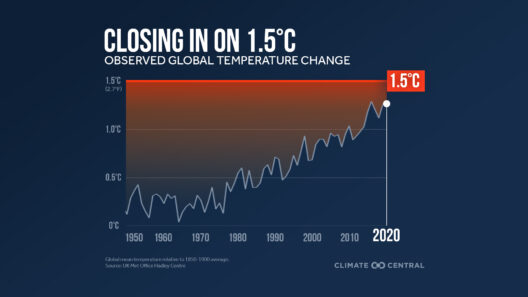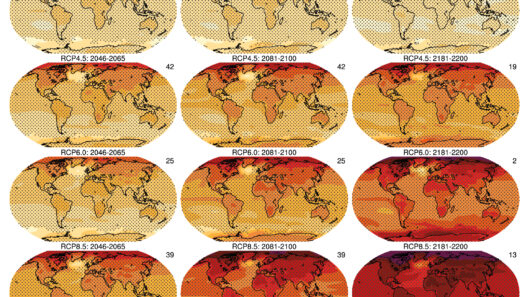Climate change has emerged as one of the most contentious topics in modern political discourse, evoking fervent discussions among scientists, politicians, and the public alike. Among the prominent figures in this debate is former President Donald Trump, whose statements regarding climate change have been both scrutinized and sensationalized. This article delves into the controversial allegations surrounding Trump’s references to climate change as a “hoax” and seeks to clarify what he actually said, illuminating the broader implications for climate policy and public opinion.
To understand the context of Trump’s statements, one must first consider the socio-political landscape during his campaign and presidency. Throughout his tenure, Trump maintained a skeptical stance on climate change, often challenging the scientific consensus that attributes human activity as a significant driver of global warming. His rhetoric resonated with a segment of the population that perceives climate action as an infringement on personal freedoms and economic growth. This perspective, though divisive, played a crucial role in shaping his electoral base.
In 2012, Trump tweeted, “The concept of global warming was created by and for the Chinese in order to make U.S. manufacturing non-competitive.” This assertion posited a conspiracy theory that suggested climate change was a fabricated notion aimed at undermining American industry. The incendiary nature of his tweet ignited widespread controversy and serves as a cornerstone of discussions surrounding his views on climate issues.
Following his election in 2016, Trump’s administration took tangible steps to dismantle various environmental regulations, citing economic concerns. His remarks during this period often exhibited a cavalier attitude toward scientific evidence. For instance, in 2017, he stated, “I don’t believe it. I think it’s a hoax.” Such declarations fueled interpretations of his stance as one that entirely disregards the potent realities of climate science.
However, labeling Trump’s position as unequivocally anti-climate action would be an oversimplification. Throughout his presidency, there were instances where he acknowledged climate change, albeit reluctantly. These moments often appeared juxtaposed against his more explosive rhetoric, creating a troubling dissonance that confounded both critics and supporters. For example, during a press briefing, he remarked, “We have to be good stewards of our environment,” indicating an awareness of environmental responsibilities, despite simultaneously advocating for deregulation.
Yet, the question remains: did Trump indeed label climate change as a “hoax,” or was this positioning more nuanced? The complexity of Trump’s messaging reflects broader societal ambivalence on climate issues. His comments tapped into fears surrounding economic displacement, energy independence, and national security, transforming climate change discussions into a recurring theme of patriotism and skepticism. In a country divided on the viability of climate action, Trump’s rhetoric harnessed populist sentiments that prioritized short-term economic gains over long-term ecological sustainability.
Moreover, it is essential to grapple with the implications of such a powerful figure within the national and global narrative on climate. The inherent dangers lie not merely in the dismissal of climate science but in the rhetoric’s capacity to inspire inaction among followers. Political leaders possess the unique ability to shape public perception and policy; therefore, when such influence is wielded irresponsibly, it creates a ripple effect that can impact generations.
In light of these concerns, it is imperative to transition the discourse surrounding climate change beyond personality and into actionable commitments. As the impacts of climate change become increasingly palpable—evidenced by extreme weather events, rising temperatures, and sea-level rise—the onus is on both policymakers and constituents to navigate these complexities with a more informed and engaged perspective.
Public interest in climate issues has crescendoed over the years, largely spurred by grassroots movements advocating for sustainable practices and policies. It is within this robust framework of activism that curiosity can flourish. By exploring various angles—scientific data, environmental justice, public health implications, and sociopolitical dynamics—we pave the way for a more comprehensive understanding of what climate change entails and the critical decisions that lie ahead.
Moreover, shifting the national narrative towards collaboration rather than division may foster more constructive dialogues. To address climate change effectively, it is vital to assemble diverse voices, including those from business, science, and frontline communities who are most vulnerable to its impacts. Rather than entrenching further into partisan debates, uncovering shared values and goals can catalyze coherent strategies to mitigate climate change and spur innovation.
In summary, while Donald Trump did make assertions that could be interpreted as calling climate change a “hoax,” digging deeper reveals a complicated and often contradictory stance. The critical challenge lies not only in comprehending his words but also in understanding their broader impact. As society grapples with the realities of a changing climate, a transition from skepticism to informed action is not only timely but necessary. Future generations depend on a shift in perspective that transcends the polarized rhetoric we often encounter. The imperative for meaningful engagement is more pressing now than ever, and the discourse surrounding climate change must evolve to ensure both environmental viability and societal well-being.




